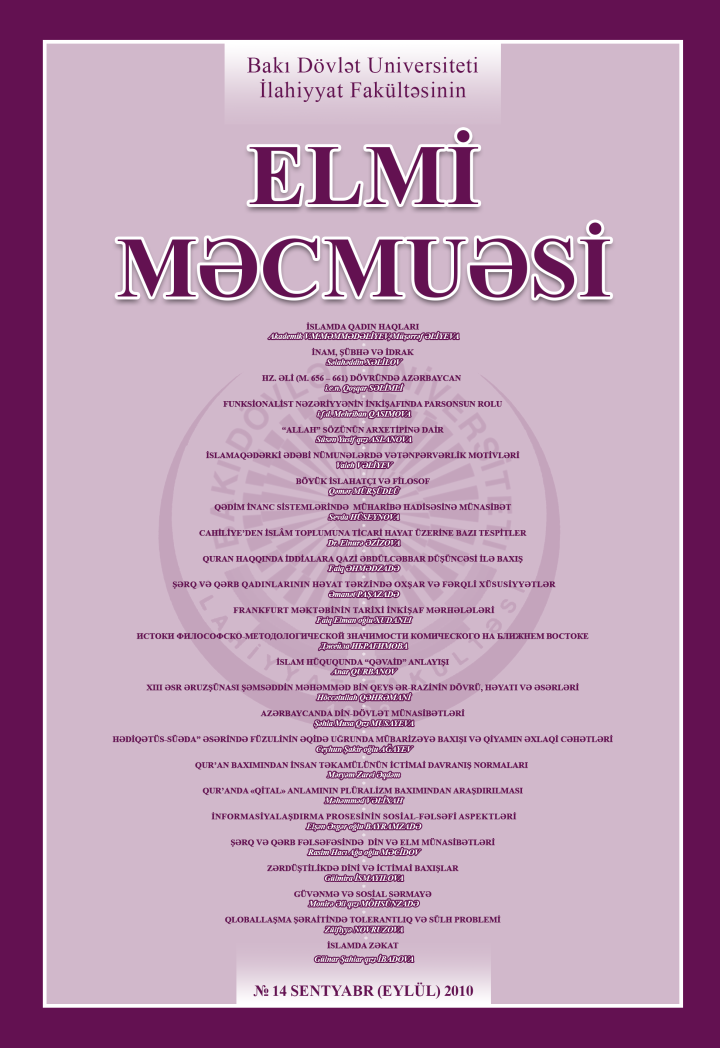İnam, şübhə və idrak
Faith, Doubt and Cognition
Вера, сомнение и познание
Аристотель. Политика // Сочинения в 4-х томах. Т. 4. М., Мысль, 1984.
Джеймс У. Многообразие религиозного опыта. Пер.с англ. М., 1993.
Лакатос И. Наука: разум или вера? // Кун Т. Структура научных революций. М., АСТ, 2001.
Платон. Протагор // Диалоги. Книга первая, М., Эксмо, 2007.
Поппер K. Логика и рост научного знания. Избранные работы. М., 1983.
Rihani Ameen F. The path of Vision. Platform İnternational, Washington, D.C., 2008.
Сантаяна Д. Скептицизм и животная вера. СПб., 2001.
Hüseyn Cavid. İblis // Seçilmiş əsərləri. Bakı, Çaşıoğlu, 2004.
Endirin
Məqalə Məlumatları
- Məqalə Növü Articles
- Təqdim Edildi sentyabr 30, 2010
- Yayımlanıb sentyabr 30, 2010
- Nömrə № 14(14) Sentyabr 2010
- Bölmə Articles
